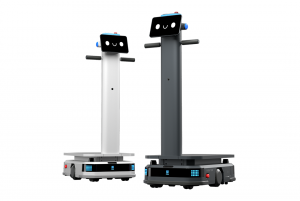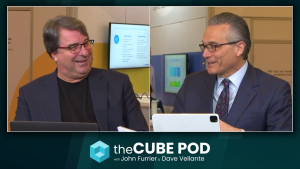U.K. startup Live Beacon wants to simplify beacon technology
Numerous companies have shown an interest in beacon technology over the years as a way to offer location-based advertising, promotions, directions and more to consumers.
Apple launched its iBeacon technology in 2013 at its Worldwide Developers Conference. The following year Samsung Electronics Co. Ltd. followed suit and launched its beacon technology service, Proximity. Last year, social media giant Facebook launched its own Bluetooth beacons to retailers. And CultureMap, an online news and review publication started its rollout of iBeacons to over 200,000 restaurants and retail locations throughout the U.S.
Another entry to the beacon market is Live Beacon, which wants to simplify beacon technology.
What is Live Beacon?
Unlike other beacons that tend to be expensive and have a complicated setup process, the London-based startup’s Live Beacon, powered by Apple’s iBeacon technology, is a small, battery-powered, cloud-controlled device that can be used straight out of the box without requiring any code, allowing anyone to send location-specific information.
The Live Beacon will broadcast any web page, video or web app up to 100 feet, straight to a consumer’s smartphone or tablet via the free Live Beacon iOS or Android app.
![]()
At the end of last year, Live Beacons were rolled out at London’s Southbank Centre, which comprises of performance venues, galleries, restaurants and shops. More than 100 beacons have been installed across the 21-acre site to improve the on-site experience for visitors.
Live Beacons can be used as information points and replace the printed brochure, or have the ability to take visitors on a guided tour through a museum or gallery while at the same time pointing outs points of interest. The Live Beacons can also be used to provide customers with a digital loyalty card, take consumers on a treasure hunt, or used in automation and the internet of things.
Live Beacon is launching its Kickstarter campaign on Oct. 4.
Beacons are moving beyond the retail space
When beacons were first launched the focus was on retail, a device that allowed location-based interactions with customers. However, beacons and their technology can also have a place in the enterprise setting.
Nick Newton, director of mobile engagement at Aruba Networks (a Hewlett-Packard Enterprise company) who was interviewed on theCUBE at the HPE Discover 2016 conference in June, spoke about the role of beacons. Use cases for beacons in enterprises include using beacons to help find conference rooms, offices and hot desks. Newton also spoke about combining the location-based data with scheduling systems to, for example, unbook a meeting room when it is not in use.
You can watch the full interview with Newton below.
Image credit: Live Beacon
A message from John Furrier, co-founder of SiliconANGLE:
Your vote of support is important to us and it helps us keep the content FREE.
One click below supports our mission to provide free, deep, and relevant content.
Join our community on YouTube
Join the community that includes more than 15,000 #CubeAlumni experts, including Amazon.com CEO Andy Jassy, Dell Technologies founder and CEO Michael Dell, Intel CEO Pat Gelsinger, and many more luminaries and experts.
THANK YOU













